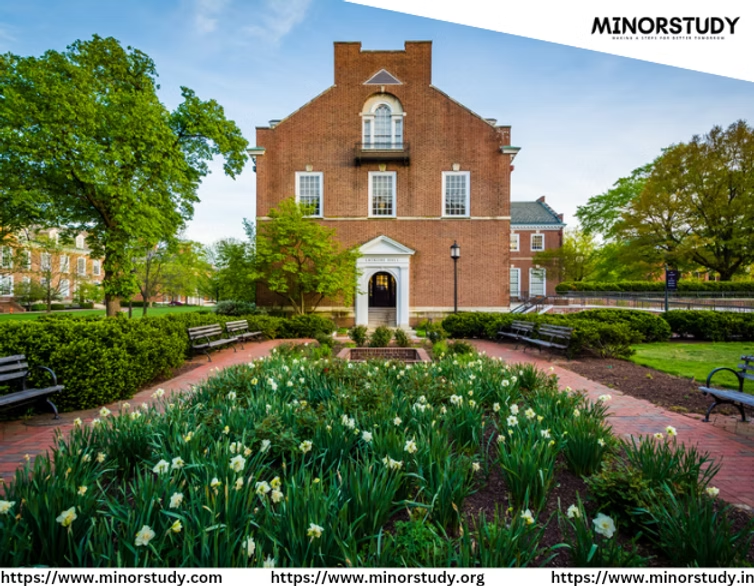The Johns Hopkins University School of Medicine (JHUSOM) is one of the most prestigious medical schools in the United States and globally renowned for its contributions to medical education, clinical care, and biomedical research. It is part of the Johns Hopkins University and is affiliated with the Johns Hopkins Medicine health system, which includes the world-class Johns Hopkins Hospital.
Key Features of Johns Hopkins University School of Medicine:
History and Overview:
Founded in 1893, the Johns Hopkins University School of Medicine is deeply rooted in the principles of excellence in patient care, scientific research, and medical education.
The school has played a pivotal role in shaping the field of modern medicine, introducing numerous medical innovations and contributing to major advancements in the healthcare industry.
Academic Programs:
Doctor of Medicine (MD): The MD program at JHUSOM is one of the most competitive in the country. It offers a cutting-edge curriculum focused on clinical skills, basic science, and research. The program emphasizes a personalized education, allowing students to pursue their interests through research, clinical experiences, and elective courses.
MD/PhD Program: This dual-degree program combines medical training with advanced research in the biomedical sciences. Students receive a comprehensive education in both clinical medicine and scientific research, preparing them for careers as physician-scientists. The program is highly selective and caters to students committed to a career in academic medicine and research.
Master’s Programs: Johns Hopkins offers a range of Master’s programs in fields such as Biomedical Sciences, Public Health, and Clinical Investigation. These programs are designed for individuals seeking specialized knowledge and training in specific areas of medicine and healthcare.
PhD Programs: The school offers PhD programs in multiple research disciplines, including neuroscience, biomedical engineering, immunology, and molecular biology. These programs focus on conducting original research to drive innovation in the medical sciences.
Postgraduate Medical Education: JHUSOM offers residency and fellowship programs in numerous medical specialties, including surgery, internal medicine, neurology, cardiology, and pediatrics. These programs provide advanced training in both clinical and research settings.
Research and Innovation:
Johns Hopkins is at the forefront of medical research, with groundbreaking work in genomics, neurology, cancer, immunology, and cardiology.
The school is home to world-class research institutes, including:
Johns Hopkins Institute for Clinical and Translational Research (ICTR): This institute bridges the gap between laboratory research and patient care, aiming to accelerate the translation of scientific discoveries into new treatments.
Johns Hopkins Sidney Kimmel Comprehensive Cancer Center: A leading center for cancer research and treatment, focusing on personalized therapies and immunotherapy.
Johns Hopkins Brain Science Institute: Focuses on advancing understanding of the brain and nervous system, with research on diseases like Alzheimer’s, Parkinson’s, and autism.
Johns Hopkins Institute for Basic Biomedical Sciences (IBBS): This institute drives innovation in the basic biomedical sciences, focusing on molecular and cellular research to understand disease mechanisms.
The school promotes translational research, where scientific discoveries are rapidly moved from the laboratory to clinical application to benefit patient care.
Clinical Care:
The Johns Hopkins Hospital, part of Johns Hopkins Medicine, is consistently ranked among the best hospitals in the world, especially in specialties such as neurology, cardiology, oncology, and orthopedics.
Patient Care: JHUSOM emphasizes high-quality, compassionate, patient-centered care, where students and residents are actively involved in direct patient care alongside experienced clinicians.
Johns Hopkins Medicine operates a wide range of specialized clinics and medical centers, providing a variety of health services including surgical treatments, cancer care, maternal health, and pediatrics.
Interdisciplinary Education:
JHUSOM places a strong emphasis on interdisciplinary collaboration across various fields of medicine, public health, and biomedical sciences. Students work alongside professionals from the Johns Hopkins Bloomberg School of Public Health and Johns Hopkins School of Nursing, which fosters a team-based approach to healthcare and research.
The school also emphasizes community outreach and public health education, allowing students to engage with diverse populations and address healthcare disparities.
Global Health Initiatives:
Johns Hopkins is deeply committed to global health and improving healthcare access worldwide. The school partners with institutions in Africa, Asia, and Latin America to address major health challenges such as infectious diseases, maternal health, and health system strengthening.
The Johns Hopkins Center for Global Health focuses on conducting research, developing public health interventions, and training healthcare professionals to combat global health issues.
Admissions:
MD Program: Admission to the MD program at JHUSOM is highly competitive, with a rigorous selection process that looks at academic performance, research experience, clinical exposure, and personal achievements. Applicants must have completed an undergraduate degree and meet specific prerequisites before applying.
The school also offers several unique tracks and pathways for MD students, such as the Medical Scientist Training Program (MSTP) for those interested in the MD/PhD dual degree and programs aimed at providing a more flexible medical education.
PhD/MD and other combined programs are also offered for students interested in careers that bridge clinical medicine and research.
Faculty:
The faculty at Johns Hopkins University School of Medicine includes leading experts in their respective fields, many of whom are recognized globally for their contributions to medical research and clinical care. Faculty members include Nobel Prize winners, research innovators, and prominent clinicians.
The faculty is committed to providing personalized education, fostering innovation, and contributing to groundbreaking research that shapes the future of medicine.
Financial Aid:
Johns Hopkins offers a range of financial aid options to medical students, including scholarships, fellowships, and loan programs.
The school aims to make medical education accessible to students from all backgrounds and works with students to provide financial support.
Notable Alumni:
The Johns Hopkins University School of Medicine boasts an impressive roster of alumni who have made significant contributions to medicine, medical research, and public health.
Notable alumni include Dr. Alfred Blalock, a pioneering surgeon in the field of cardiology, and Dr. Helen B. Taussig, a groundbreaking pediatric cardiologist.
Conclusion:
The Johns Hopkins University School of Medicine is an iconic institution in the medical field, known for its outstanding academic programs, world-class faculty, and innovative research. With a focus on cutting-edge medical education, clinical excellence, and translational research, it remains at the forefront of advancements in healthcare. Students at Johns Hopkins are given the opportunity to engage in interdisciplinary learning, work in leading healthcare settings, and contribute to scientific discoveries that have a lasting impact on global health.








